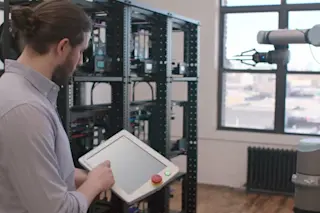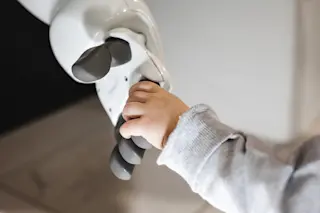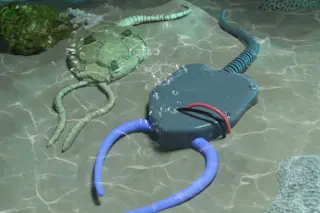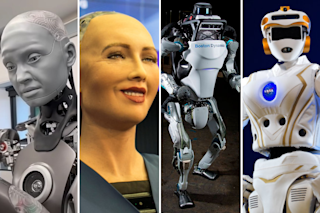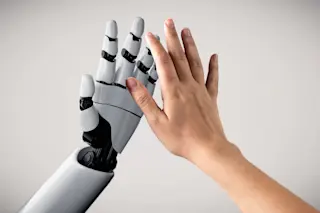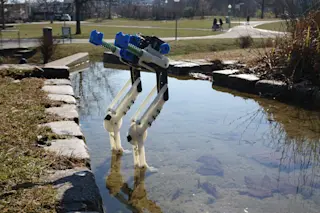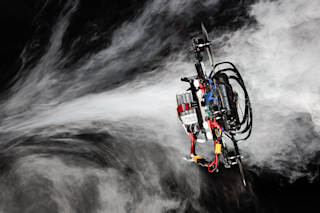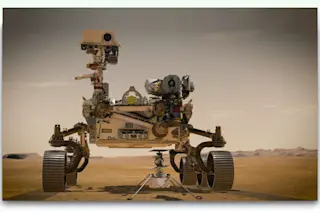(Credit: Universal Robots) Robots toiling day and night assembling widgets and thingamabobs in pitch-black warehouses isn’t some mustache-twirling industrialist tycoon's fantasy. It’s here, it's the future of manufacturing, and it’s not just the multinational conglomerates that stand to benefit from the robot labor revolution. Main Street will, too. Voodoo Manufacturing, a small 3D printing farm in Brooklyn—OK, so not quite mom and pop "Main Street"— was running up against a problem every small business wants: They were growing too quickly to keep up. Voodoo prints designs, products and anything else on demand for their customers 24 hours a day, and they can get the job done within a day. “Harvesting” was one of the biggest logjams in their assembly process, which involves taking the finished product out of a printer and replenishing the printing plate for a new job. So the company invested in a small robotic arm, the UR10 ...
'Lights-Out' Manufacturing Hits Main Street
Discover how lights-out manufacturing is transforming small businesses like Voodoo Manufacturing with collaborative robots.
More on Discover
Stay Curious
SubscribeTo The Magazine
Save up to 40% off the cover price when you subscribe to Discover magazine.
Subscribe

